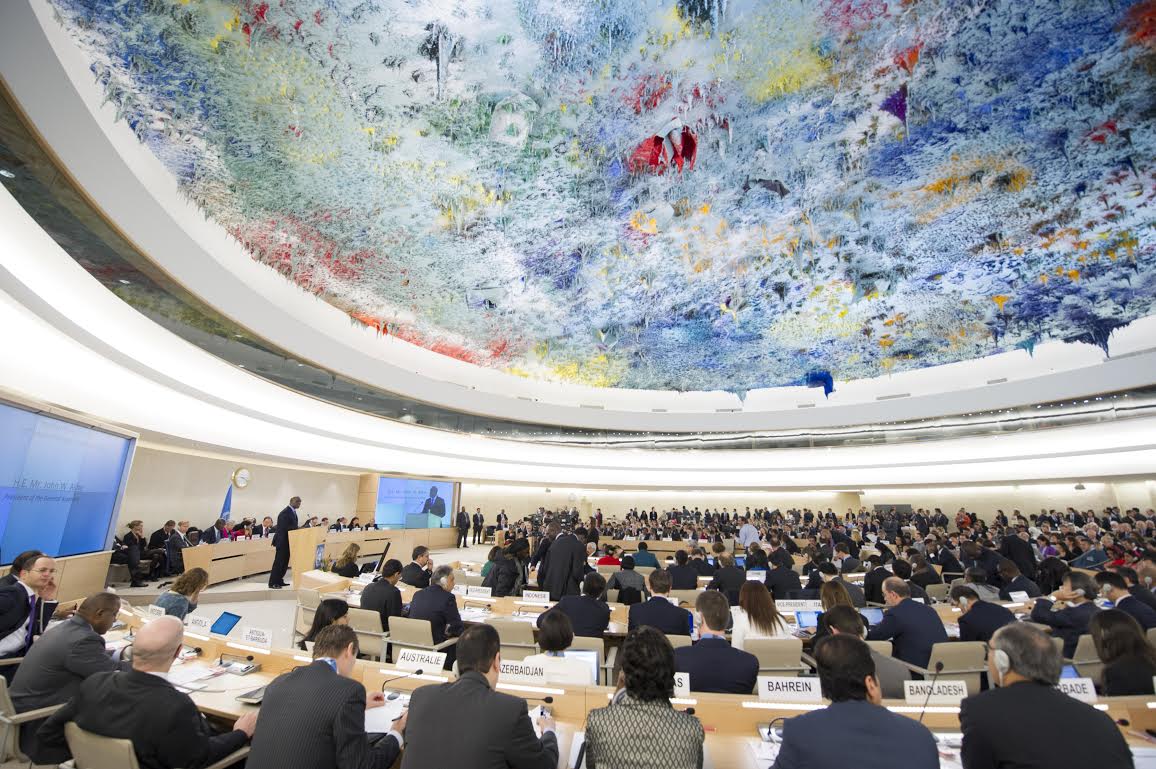
On Wednesday, July 15, Access took the floor at a UN event to discuss candidates for the Human Rights Council. In response, six out of eight participating candidate countries echoed the importance of prioritizing the right to privacy at the Council.
The UN event took place just as a big chunk of the Access team had gathered in Washington, DC, for our inaugural Crypto Summit. Here in New York, a separate contingent put on some formal UN garb, brushed up on diplomatic etiquette, and headed over to the United Nations Economic and Social Council Chamber, where we had been invited to the meeting on Human Rights Council candidates.
Given the recent appointment of a UN Special Rapporteur on the right to privacy, Joseph Cannataci, who will report to the Human Right Council (as well as the UN General Assembly), we felt this was an opportunity not to be missed. Here’s a look at what happened:
The background: the Human Rights Council and privacy
The UN Human Rights Council addresses a myriad of issues, ranging from the rights of indigenous peoples, to the rights of migrants, to the human rights situation in specific countries. In recent years, it has also been abuzz with privacy-related issues, thanks to the important work of Frank La Rue, former Special Rapporteur on the freedom of opinion and expression, his successor, David Kaye, and other UN Special Rapporteurs.
The Council is comprised of 47 UN member states, who are elected by the 193-member General Assembly. Seats on the Council are for three years, and countries cannot sit for more than two terms in a row. The elections are a yearly affair, and the next ones are scheduled for September this year. (Not all 47 member states are elected in one go; instead, they are staggered so as to ensure some continuity in the Council’s work. Additionally it’s important to note that the elections are not a free-for-all. Instead, a certain number of seats are assigned to UN regional groups.)
In the last four years, Amnesty International and the International Service for Human Rights have been co-hosting discussion events with candidate countries (you can learn more about that here). These events allow for participating candidate countries to make “pledges” about what they will do if elected to the Council. The discussions are also an important venue for other stakeholders, especially civil society, to engage with the candidates. In a commendable move that opened the proceedings even further, the moderator at the meeting took several questions submitted online, and the general public was able to follow along through a Twitter hashtag.
Questioning the candidate countries: Will you protect privacy?
Yesterday’s meeting had eight participating candidates. The election in September will designate 18 members to the Council. So why aren’t there more candidates? The unfortunate reality of the UN electoral system is that many UN member states avoid competing with one another, and instead prepare “closed slates” within a regional group. This unfortunately also serves to preclude interaction with civil society and others who might ask candidates difficult questions.
Access wants to ensure that the issue of unlawful government surveillance remains on the Council’s agenda, so we took the floor to ask the candidates how they would use their seat on the Council to protect people’s privacy across borders. We also asked how they would support Joseph Cannataci, the newly appointed Special Rapporteur on the right to privacy.
We posed one question to Germany, the representative of which currently holds the Presidency of the Council, and is running for reelection: “Is the Council the correct venue for UN discussions on privacy, or will the UN General Assembly still play a role, as it has in its past two sessions?” (You can learn more about that here and here.)
How did the countries respond?
Of the eight participating candidates, only Germany and Switzerland had included references to the right to privacy in their pledges, but after we asked our questions, six out of the eight addressed the issue:
- Germany’s response: The UN General Assembly would have to tackle privacy in the digital age again, but only after the new Special Rapporteur’s first report is released.
- Panama recalled the surveillance “scars” left in the country from the past, referring to the military dictators that ruled from 1968 to 1989, and said that all surveillance now needs a judicial order.
- Slovenia pointed to the efforts made within the European Union to combat unlawful surveillance, but also recognized that the problem is much wider in an interconnected world.
- Switzerland agreed that privacy as such remains a priority.
- Belgium said that real, honest discussion is needed on surveillance, and that the work of the new Special Rapporteur must be supported by all.
- Georgia came out strongly in favor of data protection and made reference to its data protection law and data protection authority (elected by the Georgian parliament). Interestingly, Georgia set up a special commission tasked with the destruction of all surveillance information gathered by the government during the Soviet era.
We are grateful for the efforts of the co-organizers, for the chance to participate in this discussion, and for the frank participation by these candidate countries. Access will continue to monitor and report on developments in the UN Human Rights Council through the September elections. Our own “pledge” is to keep the pressure on governments to reform unlawful surveillance regimes, and to respect digital rights of users all over the world.
